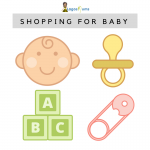The good news in understanding colic is that no matter how uncomfortable it is only temporary and your baby will grow out of it. That said there are things a new parent should understand about colic that helps in managing it. Colic is severe pain in the abdomen caused by wind or obstruction in the intestines and suffered especially by babies. It causes your otherwise healthy and thriving baby to cry excessively, this sort of crying is also called persistent crying.

Approx 15% of children suffer from colic and no one including doctors can agree on which theories explain cry excessively, what exactly causes colic and sure ways to remedy it. This makes it difficult when suggesting and prescribing treatment and medicines. No one knows for sure what causes it and there is no “single size fits everyone” treatment for it also.
Some of the theories that explain what colic is; includes that a child’s intestines are working hard, another theory raised by the medical profession for colic is that it can be caused by slow bowel movements thus allowing air into the bowel causing pain. Within 2/4 weeks after giving birth this stomach upset can start and can run for a 3-month spell.
If baby is a sufferer then he/she may cry for up to 3-4 hours very loudly. No pacifier or mothers TLC can take the pain away but it will certainly help in comforting them. Spasms usually kick in about the same time twice daily, but this can vary.
How can I tell if my baby has colic?
If your baby cries excessively, but is otherwise healthy and feeding well, it’s likely that he has colic. Your baby may be diagnosed with colic if:
- he has frequent bouts of intense and inconsolable crying
- he pulls his legs up to his tummy and arches his back when crying
- he cries most often in the late afternoon or evening
Babies are a lot stronger than you could imagine and will outgrow spasms of colic but always discuss with your baby’s doctor.
Colic in babies can prove to be an ordeal for parents who have tried everything possible to comfort the infant. Usually, baby being so uncomfortable leads to many sleepless nights for the parents as the baby seems to cry uncontrollably. Remember that baby is uncomfortable and not just acting “spoilt”.
Below are a few points that several parents have discovered in managing a baby with colic:
[Tweet “Managing a baby with colic “]
1. Relieving Gas – Burping your baby after every feeding will help to relieve gas. Clasping your baby either above/alongside your shoulder, putting baby stomach down across your knee helps to relieve the gas and as a result decrease a little of your baby’s discomfort. Putting baby on her back and gently pushing her legs up towards her chest will help to relieve the gas.
2. Rocking – It can be a rocking chair or gently swaying your baby’s cradle. The periodic movement is good for comforting a colicky baby. Holding your baby close to your chest helps to some extent as the beating of your heart is to a certain extent comforting, and can assist in relaxing them. Hold him close to you so that he can hear your heartbeat. Sit down, relax and take long, slow, breaths out so that your heartbeat becomes slow and regular.
3. Music – Babies are keen on music, so begin singing, or you can also switch on a TV or radio. The music might aid to divert them sufficiently to stop the crying.
4. Sucking – Offering a pacifier can help baby to get through the discomfort.
5. Over The Counter – Ask your doctor for some over the counter medicines for colic. It is not 100% sure that it will work but it is worth a try. Gripe water has also been recommended.
Quieten things down. Lots of activity, being passed from person to person, bright lights could over-stimulate your baby.
Try a warm bath. Your baby spent months bathed in warm amniotic fluid. A peaceful bath in a warm room can calm some crying babies
Probably out of every one of these tips, you will come across a few that will work in soothing your baby. There is no clear pattern or evidence that shows that there is any exact method that works. Pay attention to your baby’s cues and notice what seems to work. Also remember to give yourself a break as needed. When you check and see that it is not time for a feed, a change, try to take a few minutes to yourself to help to relieve the stress.
Remember this stage of colic will pass and usually does not extend past 3 or 4 months.


